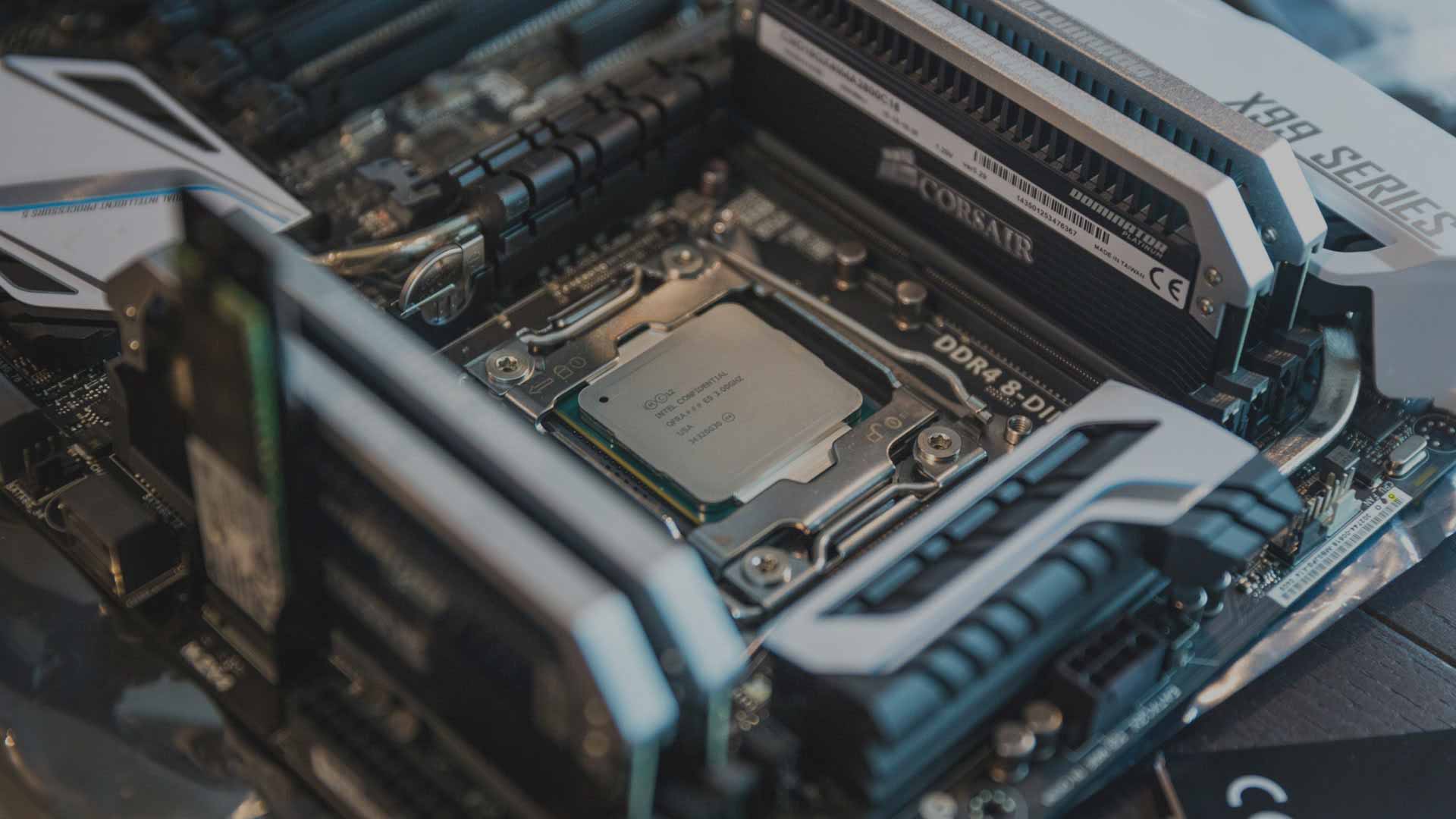
Nvidia GTX 1650 vs. Nvidia RTX 4070 Ti SUPER
In diesem Vergleich von Nvidia GTX 1650 versus Nvidia RTX 4070 Ti SUPER vergleichen wir die technischen Daten der beiden GPUs. Welche Grafikkarte ist schneller? Hier gibt es FPS & Benchmarks in Gaming und Anwendungen. Außerdem Daten zu Verbrauch, Effizienz (FPS pro Watt) und Preis-Leistung (FPS pro Euro).

Allgemeine Informationen
| Günstigster Preis |
|
|
| Hersteller | ||
| Serie | NVIDIA GeForce GTX 1650 - 4GB GDDR6 | NVIDIA GeForce RTX 4070 Ti SUPER - 16GB |
| Chip-Architektur | Turing (ab 2019/Q1) | Ada Lovelace (ab 2022/Q3) |
| Chip-Bezeichnung | TU106-125-A1 | AD103-275-A1 |
| Fertigung | TSMC 12 nm | TSMC 5 nm "NVIDIA 4N" |
| Chip-Größe | 445 mm² | 379 mm² |
Spezifikationen
Die Anzahl der Recheneinheiten, die Taktraten sowie die Größe des Cache sind neben der zugrunde liegenden Architektur ein Indiz für die Leistungsfähigkeit eines Produkts. Die Nvidia GTX 1650 verfügt über 896 FP32-ALUs und hat damit weniger Recheneinheiten als die Nvidia RTX 4070 Ti SUPER mit 8448 FP32-ALUs. Der Boost-Takt der Nvidia GTX 1650 liegt mit 1590 MHz weniger als/wie bei der Nvidia RTX 4070 Ti SUPER mit 2610 MHz.
| Basis-Takt | 1410 MHz | 2340 MHz |
| Boost-Takt | 1590 MHz | 2610 MHz |
| Chip-Konfiguration | 14SM (896SP / 56TMU / 32ROP) | 66SM (8448SP / 264TMU / 96ROP) |
| Rechenleistung | 5.7 TFLOPS (FP16), 2.85 TFLOPS (FP32), 0.09 TFLOPS (FP64) | 44.1 TFLOPS (FP16), 44.1 TFLOPS (FP32), 0.69 TFLOPS (FP64) |
Kompatibilität und Abmessungen
| Schnittstelle | PCIe 3.0 x16 | PCIe 4.0 x16 |
Speicher
Die Nvidia GTX 1650 verfügt über 4 GB GDDR6 Videospeicher, welcher an ein 128 Bit Speicherinterface angebunden ist und mit 12 Gbps taktet. Die Speicherbandbreite liegt damit bei 192 GB/s. Bei der Nvidia RTX 4070 Ti SUPER sind dagegen 16 GB GDDR6X VRAM mit einer Taktrate von 21 Gbps an einem 256 Bit Speicherinterface angeschlossen. Daraus resultiert eine Speicherbandbreite von 672 GB/s.
| Speicherkapazität | 4 GB | 16 GB |
| Speichertyp | GDDR6 | GDDR6X |
| Speicherinterface | 128 Bit | 256 Bit |
| Speichertakt | 12 Gbps (1500 MHz) | 21 Gbps (1313 MHz) |
| Speicherbandbreite | 192 GB/s | 672 GB/s |
Transcoding-Engine
| NVENC | 1x (7th Gen, max. Sessions: 8) | 2x (8th Gen, max. Sessions: 8) |
| NVDEC | 1x (4th Gen) | 1x (5th Gen) |
Encoding
| H.265 | ✓ (4K YUV 4:2:0 / 4K YUV 4:4:4 / 4K Lossless / 8K / HEVC 10bit support / HEVC B Frame support) | ✓ (4K YUV 4:2:0 / 4K YUV 4:4:4 / 4K Lossless / 8K / HEVC 10bit support / HEVC B Frame support) |
| H.264 | ✓ (YUV 4:2:0 / YUV 4:4:4 / Lossless) | ✓ (YUV 4:2:0 / YUV 4:4:4 / Lossless) |
Decoding
| H.265 | ✓ (8bit 4:2:0 / 10bit 4:2:0 / 12bit 4:2:0 / 8bit 4:4:4 / 10bit 4:4:4 / 12bit 4:4:4) | ✓ (8bit 4:2:0 / 10bit 4:2:0 / 12bit 4:2:0 / 8bit 4:4:4 / 10bit 4:4:4 / 12bit 4:4:4) |
| H.264 | ✓ | ✓ |
| VP9 | ✓ (8bit / 10bit / 12bit) | ✓ (8bit / 10bit / 12bit) |
| VP8 | ✓ | ✓ |
| VP8 | ✓ | ✓ |
| VP8 | ✓ | ✓ |
| VP8 | ✓ | ✓ |
API-Unterstützung
| DirectX | 12 (12_1) | 12 Ultimate (12_2) |
| CUDA | 7.5 | 8.9 |
| Vulkan | 1.3 | 1.3 |
| OpenCL | 3.0 | 3.0 |
| OpenGL | 4.6 | 4.6 |
| Shader Modell | 6.7 | 6.7 |
| Multi-GPU-Unterstützung | - | - |
Chip-Unterstützungen
| Raytracing | - | ✓ (3rd Gen NVIDIA RTX) |
| NVIDIA Tensor | - | ✓ (4th Gen) |
| HDCP | 2.2 | 2.3 |
Sonstiges
| Einführung | 18.06.2020 | 08.01.2024 |
| Herstellergarantie | drei Jahre (ab Produktionsdatum, Abwicklung über Fachhändler) | drei Jahre |
Spiele

- NVIDIA GeForce GTX 1650 - 4GB GDDR6AVG100.00 %1%100.00 %
- NVIDIA GeForce RTX 4070 Ti SUPER - 16GBAVG659.16 %1%683.65 %

- NVIDIA GeForce GTX 1650 - 4GB GDDR6AVG11 FPS1%8.4 FPS
- NVIDIA GeForce RTX 4070 Ti SUPER - 16GBAVG75.1 FPS1%58.6 FPS

- NVIDIA GeForce GTX 1650 - 4GB GDDR6AVG28.1 FPS1%14.4 FPS
- NVIDIA GeForce RTX 4070 Ti SUPER - 16GBAVG179.6 FPS1%113.1 FPS

- NVIDIA GeForce GTX 1650 - 4GB GDDR6AVG132.9 FPS1%63.6 FPS
- NVIDIA GeForce RTX 4070 Ti SUPER - 16GBAVG651.8 FPS1%385.4 FPS

- NVIDIA GeForce GTX 1650 - 4GB GDDR6AVG19.5 FPS1%15.4 FPS
- NVIDIA GeForce RTX 4070 Ti SUPER - 16GBAVG110.6 FPS1%90.5 FPS

- NVIDIA GeForce GTX 1650 - 4GB GDDR6AVG42.6 FPS1%37.1 FPS
- NVIDIA GeForce RTX 4070 Ti SUPER - 16GBAVG240.1 FPS1%204.3 FPS

- NVIDIA GeForce GTX 1650 - 4GB GDDR6AVG18.7 FPS1%12.4 FPS
- NVIDIA GeForce RTX 4070 Ti SUPER - 16GBAVG207.1 FPS1%146.7 FPS

- NVIDIA GeForce GTX 1650 - 4GB GDDR6AVG26.8 FPS1%17.5 FPS
- NVIDIA GeForce RTX 4070 Ti SUPER - 16GBAVG171.6 FPS1%95.3 FPS

- NVIDIA GeForce GTX 1650 - 4GB GDDR6AVG34.8 FPS1%28.9 FPS
- NVIDIA GeForce RTX 4070 Ti SUPER - 16GBAVG208.4 FPS1%159.9 FPS

- NVIDIA GeForce GTX 1650 - 4GB GDDR6AVG11.5 FPS1%6.2 FPS
- NVIDIA GeForce RTX 4070 Ti SUPER - 16GBAVG100.6 FPS1%63 FPS

- NVIDIA GeForce GTX 1650 - 4GB GDDR6AVG47.9 FPS1%35.1 FPS
- NVIDIA GeForce RTX 4070 Ti SUPER - 16GBAVG282.9 FPS1%193.8 FPS

- NVIDIA GeForce GTX 1650 - 4GB GDDR6AVG17.1 FPS1%13.7 FPS
- NVIDIA GeForce RTX 4070 Ti SUPER - 16GBAVG112.1 FPS1%88.6 FPS

- NVIDIA GeForce GTX 1650 - 4GB GDDR6AVG37.5 FPS1%30.8 FPS
- NVIDIA GeForce RTX 4070 Ti SUPER - 16GBAVG187.2 FPS1%148 FPS

- NVIDIA GeForce GTX 1650 - 4GB GDDR6AVG0.18 FPSNVIDIA GeForce RTX 4070 Ti SUPER - 16GBAVG0.25 FPS

- NVIDIA GeForce GTX 1650 - 4GB GDDR6AVG0.53 FPSNVIDIA GeForce RTX 4070 Ti SUPER - 16GBAVG0.87 FPS
Produktivität

- NVIDIA GeForce GTX 1650 - 4GB GDDR6AVG100.00 %NVIDIA GeForce RTX 4070 Ti SUPER - 16GBAVG538.07 %

- NVIDIA GeForce GTX 1650 - 4GB GDDR6PKT22.34 PunkteNVIDIA GeForce RTX 4070 Ti SUPER - 16GBPKT151.37 Punkte

- NVIDIA GeForce GTX 1650 - 4GB GDDR6PKT144.9 PunkteNVIDIA GeForce RTX 4070 Ti SUPER - 16GBPKT170.8 Punkte

- NVIDIA GeForce GTX 1650 - 4GB GDDR6PKT18.5 PunkteNVIDIA GeForce RTX 4070 Ti SUPER - 16GBPKT80 Punkte

- NVIDIA GeForce GTX 1650 - 4GB GDDR6PKT10.8 PunkteNVIDIA GeForce RTX 4070 Ti SUPER - 16GBPKT63.68 Punkte

- NVIDIA GeForce GTX 1650 - 4GB GDDR6PKT32.77 PunkteNVIDIA GeForce RTX 4070 Ti SUPER - 16GBPKT129.03 Punkte

- NVIDIA GeForce GTX 1650 - 4GB GDDR6PKT34 PunkteNVIDIA GeForce RTX 4070 Ti SUPER - 16GBPKT140 Punkte

- NVIDIA GeForce GTX 1650 - 4GB GDDR6PKT60.72 PunkteNVIDIA GeForce RTX 4070 Ti SUPER - 16GBPKT403.6 Punkte

- NVIDIA GeForce GTX 1650 - 4GB GDDR6PKT20.27 PunkteNVIDIA GeForce RTX 4070 Ti SUPER - 16GBPKT206.11 Punkte

- NVIDIA GeForce GTX 1650 - 4GB GDDR6AVG0.22 FPSNVIDIA GeForce RTX 4070 Ti SUPER - 16GBAVG0.20 FPS
